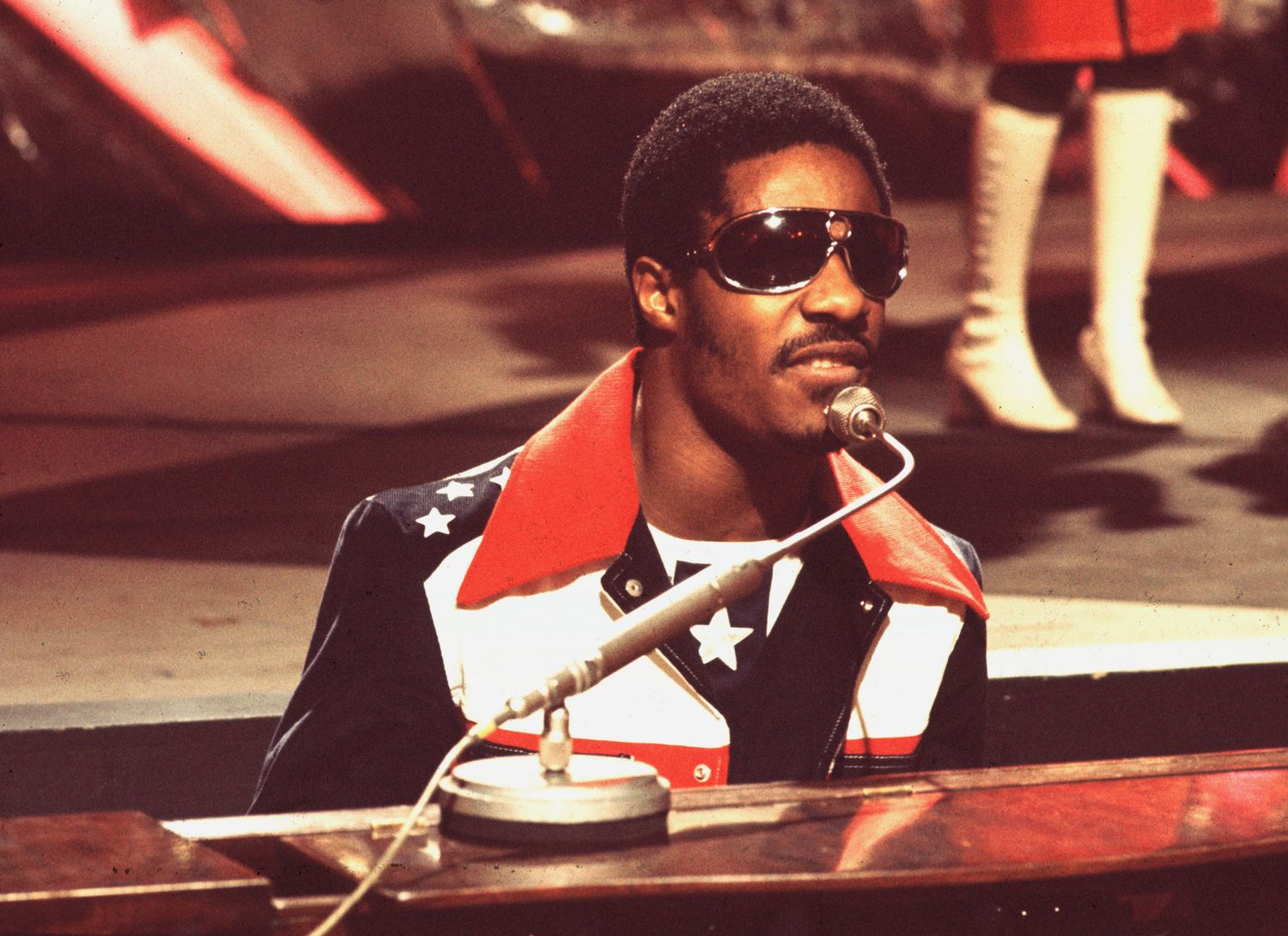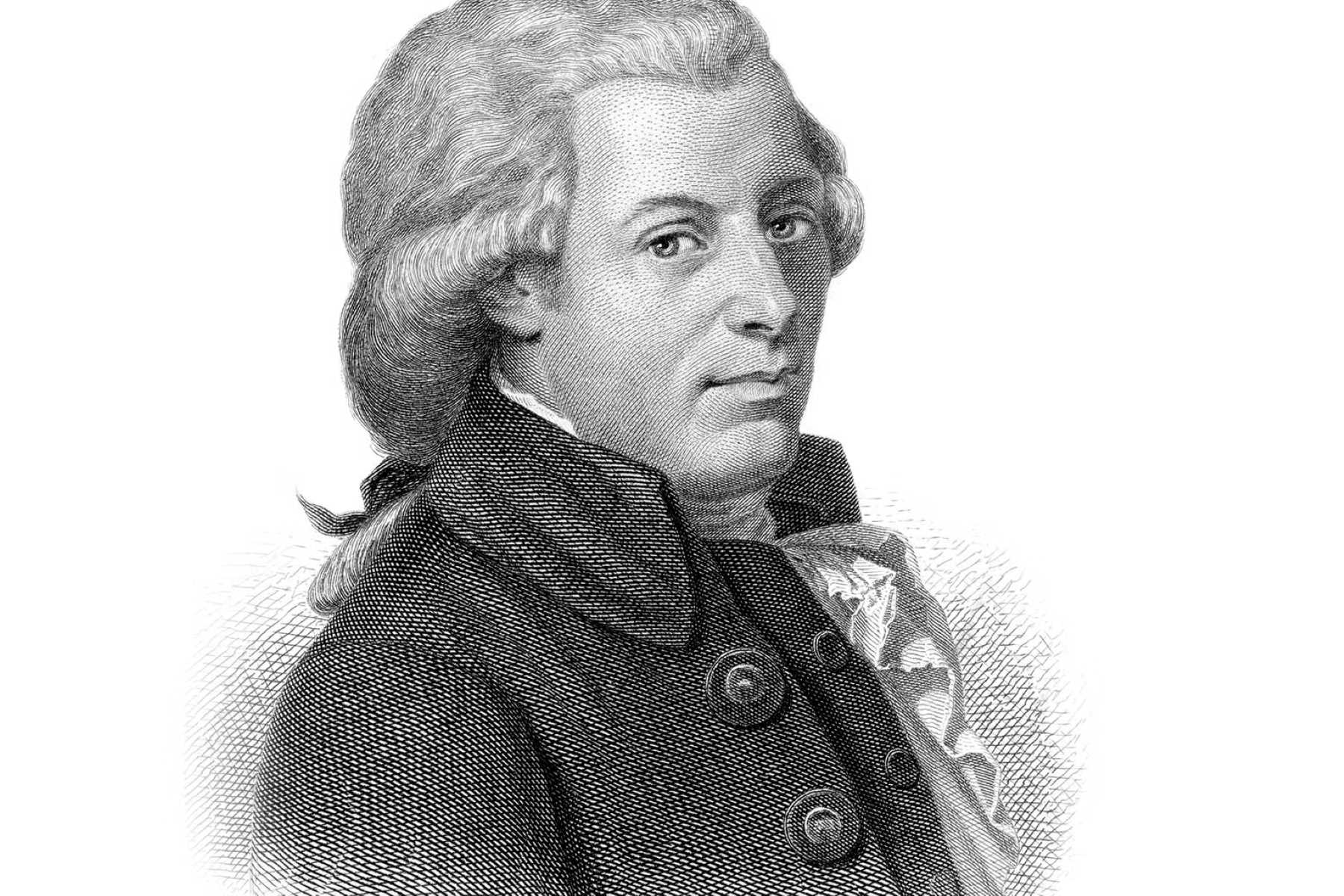Home>Production & Technology>Songwriter>At What Age Did Singer-Songwriter Stevie Wonder Sign With Motown Records?


Songwriter
At What Age Did Singer-Songwriter Stevie Wonder Sign With Motown Records?
Published: February 27, 2024
Discover at what age singer-songwriter Stevie Wonder signed with Motown Records and began his legendary career in music. Explore his early journey as a talented songwriter. Gain insights into the early career of the iconic songwriter.
(Many of the links in this article redirect to a specific reviewed product. Your purchase of these products through affiliate links helps to generate commission for AudioLover.com, at no extra cost. Learn more)
Table of Contents
Introduction
Stevie Wonder, a musical prodigy and one of the most influential singer-songwriters of our time, has left an indelible mark on the music industry. His unparalleled talent and remarkable journey have captivated audiences worldwide, making him a revered figure in the realm of popular music.
From his early years as a child prodigy to his groundbreaking achievements in the music industry, Stevie Wonder's story is one of resilience, creativity, and unwavering passion. His ability to transcend barriers and connect with audiences on a profound level has solidified his status as a musical icon.
In this article, we delve into the captivating tale of Stevie Wonder's musical career, exploring pivotal moments that have shaped his legacy. From his humble beginnings to his groundbreaking signing with Motown Records, we uncover the remarkable journey of a musical genius who defied all odds to become a global sensation.
Join us as we embark on a journey through the life and career of Stevie Wonder, a trailblazing artist whose impact on the music industry continues to resonate with audiences across generations.
Early Life and Musical Career
Stevie Wonder, born Stevland Hardaway Judkins, entered the world on May 13, 1950, in Saginaw, Michigan. Despite being born prematurely, he displayed an extraordinary musical inclination from an early age. At just 11 years old, he was discovered by Ronnie White of the legendary Motown group The Miracles, who recognized his exceptional talent and arranged an audition with Berry Gordy, the founder of Motown Records. This pivotal moment marked the beginning of Stevie Wonder's remarkable journey in the music industry.
Wonder's early musical career was characterized by his exceptional abilities as a multi-instrumentalist and a gifted vocalist. His debut album, "The Jazz Soul of Little Stevie," released when he was only 12 years old, showcased his remarkable talent and garnered widespread acclaim. His proficiency in playing various instruments, including the harmonica, drums, and piano, demonstrated a level of musical prowess that transcended his age.
As he transitioned into his teenage years, Wonder's musical acumen continued to flourish, leading to the release of several successful albums, including "Up-Tight" and "My Cherie Amour." His unique blend of soul, R&B, and pop resonated with audiences, earning him a dedicated fan base and critical acclaim within the music industry.
Despite facing numerous challenges, including a near-fatal car accident that temporarily affected his sense of smell and temporarily impaired his sense of taste, Wonder's resilience and unwavering passion for music propelled him to new heights. His experiences and personal growth were reflected in his music, as he began to explore themes of social consciousness and spirituality in his songwriting, setting the stage for the groundbreaking work that would define his later career.
Stevie Wonder's early life and musical career laid the foundation for his emergence as a pioneering force in the music industry. His innate musical abilities, coupled with his tenacity and creative vision, set him on a trajectory toward legendary status. As he continued to evolve as an artist, his impact on the music industry would only continue to grow, solidifying his legacy as one of the most influential singer-songwriters of all time.
Signing with Motown Records
Stevie Wonder's pivotal moment came when, at the tender age of 11, he auditioned for Berry Gordy, the visionary founder of Motown Records. Impressed by Wonder's exceptional talent and raw musical prowess, Gordy wasted no time in signing the young prodigy to the legendary label. This monumental decision marked the beginning of a transformative chapter in Wonder's career and had far-reaching implications for the music industry as a whole.
The signing with Motown Records not only provided Wonder with a platform to showcase his extraordinary musical abilities but also positioned him as a trailblazing figure in the Motown roster. This move set the stage for the emergence of a musical genius whose impact would transcend generations.
Under the guidance of Motown Records, Wonder's career experienced a meteoric rise. His early releases, including the critically acclaimed "The Jazz Soul of Little Stevie," showcased his remarkable talent and solidified his status as a child prodigy with unparalleled musical abilities. As he matured as an artist, his collaboration with Motown Records enabled him to explore new creative horizons, leading to the release of groundbreaking albums that would shape the landscape of popular music.
Moreover, Wonder's signing with Motown Records marked a significant milestone in the label's history. His innovative approach to songwriting and musical composition pushed the boundaries of traditional R&B and soul music, paving the way for a new era of artistic expression within the Motown family. His profound impact on the label's musical direction and his ability to transcend genre limitations established him as a visionary artist whose influence extended far beyond the confines of conventional music industry norms.
The partnership between Stevie Wonder and Motown Records yielded a prolific body of work that resonated with audiences on a global scale. His ability to infuse soulful melodies with poignant lyrics and captivating arrangements redefined the parameters of popular music, earning him widespread acclaim and adoration from fans and critics alike.
In essence, the signing with Motown Records was a transformative moment for Stevie Wonder, propelling him into the spotlight as a musical trailblazer and setting the stage for an illustrious career that would leave an indelible mark on the music industry.
This partnership not only elevated Wonder's status as an artist but also contributed to the evolution of Motown Records as a pioneering force in the realm of popular music. The impact of this collaboration continues to reverberate through the annals of music history, serving as a testament to the enduring legacy of Stevie Wonder and his groundbreaking tenure with Motown Records.
Impact on Music Industry
Stevie Wonder's influence on the music industry transcends mere accolades and commercial success; it embodies a profound transformation of the artistic landscape. His innovative approach to songwriting, musical composition, and performance has redefined the boundaries of popular music, leaving an indelible mark on the industry.
One of the most notable aspects of Wonder's impact on the music industry is his ability to seamlessly blend genres, infusing soul, R&B, pop, and jazz elements into his music. This fusion not only broadened his appeal to diverse audiences but also challenged conventional genre distinctions, paving the way for a new era of artistic expression. His groundbreaking albums, including "Innervisions" and "Songs in the Key of Life," stand as testaments to his unparalleled ability to transcend musical boundaries and create timeless, genre-defying masterpieces.
Furthermore, Wonder's influence extends beyond his musical prowess; his commitment to social consciousness and advocacy for equality and justice has resonated through his music, sparking meaningful conversations and inspiring change. Tracks such as "Living for the City" and "Higher Ground" serve as poignant examples of his ability to address pressing social issues through his art, igniting a sense of awareness and empathy among listeners.
In addition to his artistic contributions, Wonder's impact on the music industry is exemplified through his pioneering use of technology in music production. His experimentation with synthesizers and electronic instruments not only pushed the sonic boundaries of his time but also laid the groundwork for future innovations in music technology. His visionary approach to incorporating new sounds and production techniques set a precedent for artists and producers, shaping the trajectory of music production for years to come.
Moreover, Wonder's enduring influence is evidenced by the countless artists who cite him as a source of inspiration and influence. His ability to connect with audiences on a deeply emotional level, coupled with his unwavering commitment to musical excellence, has solidified his status as a role model for aspiring musicians and a revered figure within the industry.
In essence, Stevie Wonder's impact on the music industry is multifaceted and far-reaching. His artistic innovation, social advocacy, technological contributions, and enduring influence on future generations of musicians collectively underscore his unparalleled significance within the musical landscape. As his legacy continues to resonate through the fabric of popular music, it is evident that Stevie Wonder's impact on the industry transcends mere musical achievements, shaping the very essence of artistic expression and cultural resonance.
Conclusion
In conclusion, Stevie Wonder's journey from a young prodigy to a global musical icon is a testament to the transformative power of creativity, resilience, and unwavering passion. His early signing with Motown Records not only marked a pivotal moment in his career but also set the stage for a remarkable trajectory that would redefine the music industry.
Wonder's ability to transcend genre limitations and seamlessly blend soul, R&B, pop, and jazz elements in his music has reshaped the artistic landscape, inspiring generations of musicians and captivating audiences worldwide. His profound impact extends beyond commercial success, encompassing a commitment to social consciousness and advocacy for justice, as reflected in his poignant musical compositions.
Furthermore, Wonder's pioneering use of technology in music production has left an indelible mark on the industry, influencing future innovations and shaping the sonic landscape of popular music. His enduring influence on aspiring musicians and established artists alike underscores his status as a revered figure within the musical realm.
As we reflect on Stevie Wonder's unparalleled legacy, it becomes evident that his contributions to the music industry are not merely confined to his chart-topping hits or critical acclaim; they represent a profound transformation of artistic expression and cultural resonance. His ability to connect with audiences on a deeply emotional level, coupled with his unwavering commitment to musical excellence, solidifies his status as a trailblazing artist whose impact will continue to reverberate through the annals of music history.
In essence, Stevie Wonder's signing with Motown Records marked the beginning of a transcendent career that transcended musical boundaries and redefined the very essence of popular music. His enduring legacy serves as a testament to the enduring power of creativity, resilience, and unwavering passion, inspiring future generations to embrace the transformative potential of artistic expression.
Stevie Wonder's remarkable journey stands as a testament to the enduring power of creativity, resilience, and unwavering passion. His impact on the music industry transcends mere accolades, embodying a profound transformation of the artistic landscape that will continue to resonate through the fabric of popular music for years to come.











